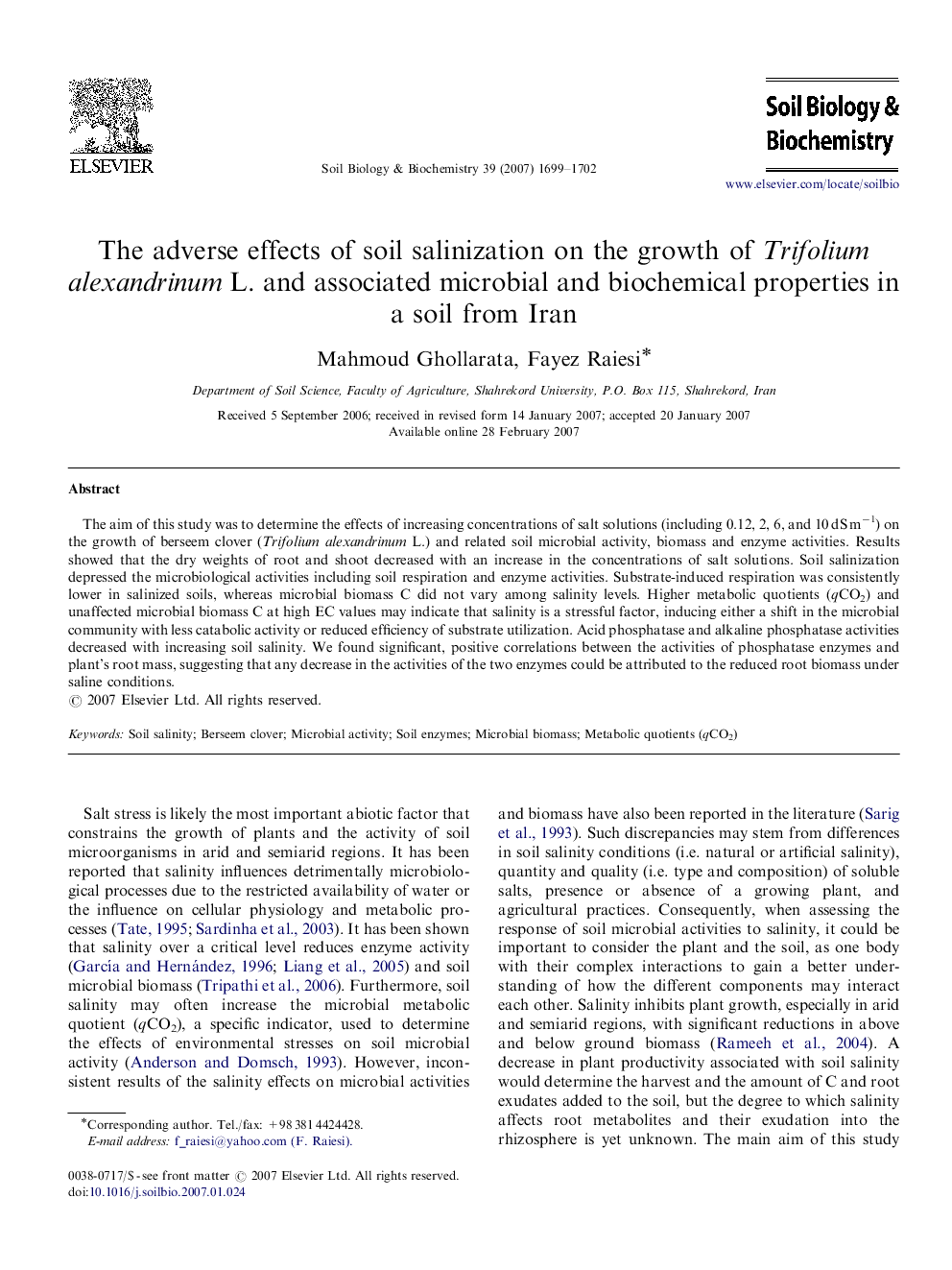| Article ID | Journal | Published Year | Pages | File Type |
|---|---|---|---|---|
| 2026234 | Soil Biology and Biochemistry | 2007 | 4 Pages |
The aim of this study was to determine the effects of increasing concentrations of salt solutions (including 0.12, 2, 6, and 10 dS m−1) on the growth of berseem clover (Trifolium alexandrinum L.) and related soil microbial activity, biomass and enzyme activities. Results showed that the dry weights of root and shoot decreased with an increase in the concentrations of salt solutions. Soil salinization depressed the microbiological activities including soil respiration and enzyme activities. Substrate-induced respiration was consistently lower in salinized soils, whereas microbial biomass C did not vary among salinity levels. Higher metabolic quotients (qCO2) and unaffected microbial biomass C at high EC values may indicate that salinity is a stressful factor, inducing either a shift in the microbial community with less catabolic activity or reduced efficiency of substrate utilization. Acid phosphatase and alkaline phosphatase activities decreased with increasing soil salinity. We found significant, positive correlations between the activities of phosphatase enzymes and plant's root mass, suggesting that any decrease in the activities of the two enzymes could be attributed to the reduced root biomass under saline conditions.
